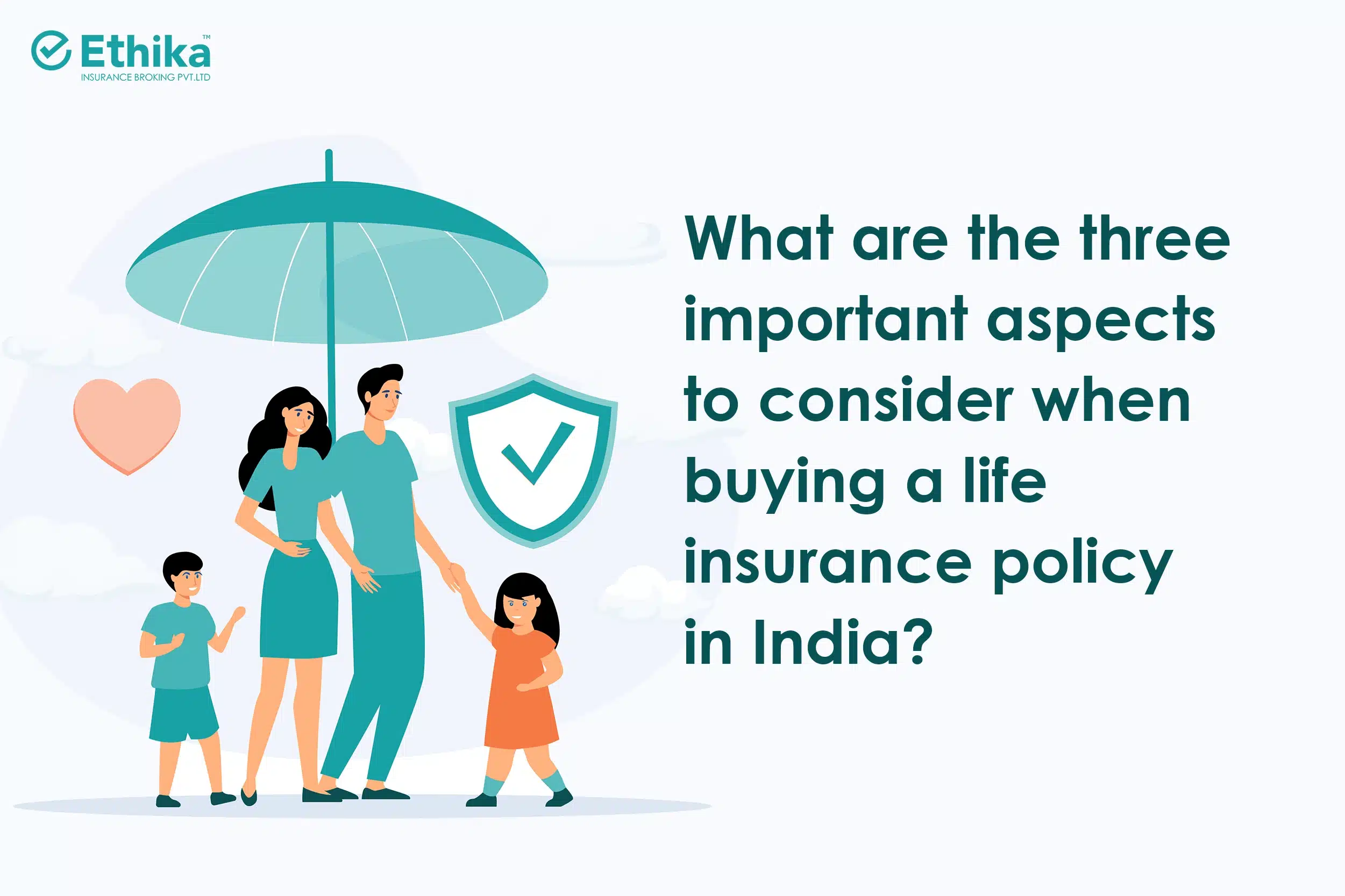
Life insurance is more than just a financial safeguard for your loved ones—it’s a cornerstone of a well-rounded financial plan. With new developments in the insurance industry and evolving customer needs, choosing the right policy requires careful consideration.
Here are the top three factors to focus on when buying life insurance in India.
What’s on this page?
Enhancing Coverage with Add-ons (Riders)
Modern life insurance policies offer riders, i.e. optional add-ons that extend your coverage. These can transform a basic policy into a comprehensive financial shield.
- Critical Illness Coverage: With rising healthcare costs and the prevalence of lifestyle diseases, critical illness riders now include broader conditions like coverage for diabetes and even mental health disorders.
- Mid term increase of sum insured: Check if your insurer allows for a mid term increase of your sum insured. This will ensure that if you want to increase the sum insured due to your lifestyle inflation, you do not need to go and buy a new policy.
When selecting riders, ensure they align with your lifestyle and financial goals to avoid unnecessary costs.
Prioritizing After-Sales Service
After-sales service is no longer limited to claims processing. Insurers are enhancing customer experience with cutting-edge technology and value-added benefits.
- Seamless Digital Claims: Claims can now be processed faster than ever, thanks to AI-powered claim settlement platforms.
- Wellness Programs: Many insurers offer free health check-ups, fitness tracking rewards, and access to telemedicine to promote a healthy lifestyle.
- Fraud Protection: Advanced fraud detection systems safeguard customers from scams, making insurance more secure than ever.
Choose an insurer with a reputation for prompt service and a customer-centric approach to avoid headaches in the long run.
Choosing the Right Intermediary
Your intermediary—whether an agent, broker, or online platform—plays a key role in ensuring a smooth experience throughout your policy term.
When choosing an intermediary, ensure to
- Avoid channels who specialize in distribution like banks or aggregators
- Check for Customer reviews online
- Check for all round support including support with claims settlement. Some intermediaries like Ethika provide for added wellness benefits that enhance your experience.
Selecting the right intermediary with expertise and reliable customer support can make your insurance journey hassle-free.
Ethika has, over the years, helped several Customers choose the right life insurance policy. Call us for a consultation, today.
Why It’s More Important Than Ever to Choose the right policy, wisely
With rapid technological advancements and evolving customer expectations, buying life insurance is no longer a one-size-fits-all decision. By understanding your needs, prioritizing customer service, and leveraging modern tools, you can ensure your life insurance policy not only protects your loved ones but also aligns with your broader financial goals.
Take your time, do your research, and choose a policy that offers the perfect balance of coverage, flexibility, and value.
Frequently Asked Questions (FAQs)
1. What are riders in life insurance, and why should I consider them?
Riders are optional add-ons to your life insurance policy that enhance your coverage. They allow you to customize your policy to suit your needs. Common riders include critical illness cover, accidental death benefit, and return of premium. For instance, a critical illness rider provides financial support if you’re diagnosed with specific serious illnesses, ensuring your policy goes beyond just life coverage.
2. How do I evaluate the after-sales service of an insurance provider?
Good after-sales service is crucial for a smooth claims process and ongoing policy management. Look for insurers with a high claim settlement ratio, responsive customer service, and advanced digital platforms. Checking online reviews, testimonials, and IRDAI’s Annual Report on claim settlement ratios can provide valuable insights.
3. How do I choose the right intermediary for purchasing life insurance?
The right intermediary—whether an agent, broker, or online platform—should offer transparency, expertise, and reliable support. Choose someone who has a solid track record and good industry knowledge while offering personalized services.
4. What documents are required to purchase a life insurance policy?
The basic documents needed for buying life insurance include:
- Identity proof: Aadhaar, PAN, or Passport.
- Address proof: Utility bills, voter ID, or rental agreement.
- Income proof: Salary slips, bank statements, or Income Tax Returns.
- Age proof: Birth certificate or school leaving certificate.
- Medical records: For policies with medical underwriting.
Ensure you have these documents ready for a hassle-free application process.
5. How can I save money on life insurance premiums?
You can save on life insurance premiums by doing some primary research. Understand the kind of coverage you need and the sum insured that would be optimal for you. Research on the insurer who has a good financial standing and a good reputation of settling claims. Alternatively, approach a good broker, who can take care of all of these.